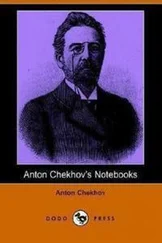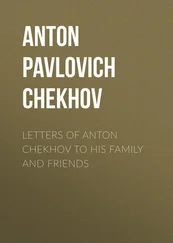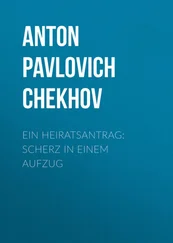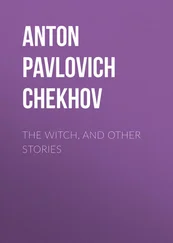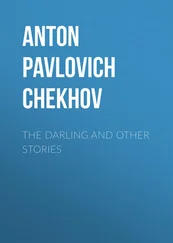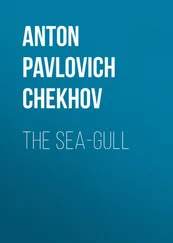Антон Чехов - Letters of Anton Chekhov
Здесь есть возможность читать онлайн «Антон Чехов - Letters of Anton Chekhov» весь текст электронной книги совершенно бесплатно (целиком полную версию без сокращений). В некоторых случаях можно слушать аудио, скачать через торрент в формате fb2 и присутствует краткое содержание. Год выпуска: 2004, Жанр: Прочая документальная литература, на английском языке. Описание произведения, (предисловие) а так же отзывы посетителей доступны на портале библиотеки ЛибКат.
- Название:Letters of Anton Chekhov
- Автор:
- Жанр:
- Год:2004
- ISBN:нет данных
- Рейтинг книги:5 / 5. Голосов: 1
-
Избранное:Добавить в избранное
- Отзывы:
-
Ваша оценка:
- 100
- 1
- 2
- 3
- 4
- 5
Letters of Anton Chekhov: краткое содержание, описание и аннотация
Предлагаем к чтению аннотацию, описание, краткое содержание или предисловие (зависит от того, что написал сам автор книги «Letters of Anton Chekhov»). Если вы не нашли необходимую информацию о книге — напишите в комментариях, мы постараемся отыскать её.
Letters of Anton Chekhov — читать онлайн бесплатно полную книгу (весь текст) целиком
Ниже представлен текст книги, разбитый по страницам. Система сохранения места последней прочитанной страницы, позволяет с удобством читать онлайн бесплатно книгу «Letters of Anton Chekhov», без необходимости каждый раз заново искать на чём Вы остановились. Поставьте закладку, и сможете в любой момент перейти на страницу, на которой закончили чтение.
Интервал:
Закладка:
One day a young doctor called Uspensky came in from Zvenigorod, a small town fourteen miles away. "Look here," he said to Chekhov, "I am going away for a holiday and can't find anyone to take my place…. You take the job on. My Pelageya will cook for you, and there is a guitar there…."
Voskresensk and Zvenigorod played an important part in Chekhov's life as a writer; a whole series of his tales is founded on his experiences there, besides which it was his first introduction to the society of literary and artistic people. Three or four miles from Voskresensk was the estate of a landowner, A. S. Kiselyov, whose wife was the daughter of Begitchev, the director of the Moscow Imperial Theatre. The Chekhovs made the acquaintance of the Kiselyovs, and spent three summers in succession on their estate, Babkino.
The Kiselyovs were musical and cultivated people, and intimate friends of Dargomyzhsky, Tchaykovsky the composer, and the Italian actor Salvini. Madame Kiselyov was passionately fond of fishing, and would spend hours at a time sitting on the river bank with Anton, fishing and talking about literature. She was herself a writer. Chekhov was always playing with the Kiselyov children and running about the old park with them. The people he met, the huntsman, the gardener, the carpenters, the sick women who came to him for treatment, and the place itself, river, forests, nightingales—all provided Chekhov with subjects to write about and put him in the mood for writing. He always got up early and began writing by seven o'clock in the morning. After lunch the whole party set off to look for mushrooms in the woods. Anton was fond of looking for mushrooms, and said it stimulated the imagination. At this time he was always talking nonsense.
Levitan, the painter, lived in the neighbourhood, and Chekhov and he dressed up, blacked their faces and put on turbans. Levitan then rode off on a donkey through the fields, where Anton suddenly sprang out of the bushes with a gun and began firing blank cartridges at him.
In 1886 Chekhov suffered for the second time from an attack of spitting blood. There is no doubt that consumption was developing, but apparently he refused to believe this himself. He went on being as gay as ever, though he slept badly and often had terrible dreams. It was one of these dreams that suggested the subject of his story "The Black Monk."
That year he began to write for the Novoye Vremya , which made a special feature of his work. Under the influence of letters from Grigorovitch, who was the first person to appreciate his talent, Chekhov began to take his writing more seriously.
In 1887 he visited the south of Russia and stayed at the Holy Mountains, which gave him the subjects of two of his stories, "Easter Eve" and "Uprooted." In the autumn of that year he was asked by Korsh, a theatrical manager who knew him as a humorous writer, to write something for his theatre. Chekhov sat down and wrote "Ivanov" in a fortnight, sending off every act for rehearsal as it was completed.
By this time he had won a certain amount of recognition, everyone was talking of him, and there was consequently great curiosity about his new play. The performance was, however, only partially a success; the audience, divided into two parties, hissed vigorously and clapped noisily. For a long time afterwards the newspapers were full of discussions of the character and personality of the hero, while the novelty of the dramatic method attracted great attention.
In January, 1889, the play was performed at the Alexandrinsky Theatre in Petersburg and the controversy broke out again.
"Ivanov" was the turning-point in Chekhov's mental development, and literary career. He took up his position definitely as a writer, though his brass plate continued to hang on the door. Shortly after writing "Ivanov," he wrote a one-act play called "The Bear." The following season Solovtsev, who had taken the chief character in "The Bear," opened a theatre of his own in Moscow, which was not at first a success. He appealed to Chekhov to save him with a play for Christmas, which was only ten days off. Chekhov set to work and wrote an act every day. The play was produced in time, but the author was never satisfied with it, and after a short, very successful run took it off the stage. Several years later he completely remodelled it and produced it as "Uncle Vanya" at the Art Theatre in Moscow. At this time he was writing a long novel, of which he often dreamed aloud, and which he liked to talk about. He was for several years writing at this novel, but no doubt finally destroyed it, as no trace of it could be found after his death. He wanted it to embody his views on life, opinions which he expressed in a letter to Plestcheyev in these words:
"I am not a Liberal, not a Conservative…. I should have liked to have been a free artist and nothing more—and I regret that God has not given me the strength to be one. I hate lying and violence in all their forms—the most absolute freedom, freedom from force and fraud in whatever form the two latter may be expressed, that is the programme I would hold to if I were a great artist."
At this time he was always gay and insisted on having people round him while he worked. His little house in Moscow, which "looked like a chest of drawers," was a centre to which people, and especially young people, flocked in swarms. Upstairs they played the piano, a hired one, while downstairs he sat writing through it all. "I positively can't live without visitors," he wrote to Suvorin; "when I am alone, for some reason I am frightened." This gay life which seemed so full of promise was, however, interrupted by violent fits of coughing. He tried to persuade other people, and perhaps himself, that it was not serious, and he would not consent to be properly examined. He was sometimes so weak from haemorrhage that he could see no one, but as soon as the attack was over his mood changed, the doors were thrown open, visitors arrived, there was music again, and Chekhov was once more in the wildest spirits.
The summers of those two years, 1888 and 1889, he spent with his family in a summer villa at Luka, in the province of Harkov. He was in ecstasies beforehand over the deep, broad river, full of fish and crayfish, the pond full of carp, the woods, the old garden, and the abundance of young ladies. His expectations were fulfilled in every particular, and he had all the fishing and musical society he could wish for. Soon after his arrival Plestcheyev came to stay with him on a month's visit.
He was an old man in feeble health, but attractive to everyone. Young ladies in particular were immediately fascinated by him. He used to compose his works aloud, sometimes shouting at the top of his voice, so that Chekhov would run in and ask him if he wanted anything. Then the old man would give a sweet and guilty smile and go on with his work. Chekhov was in constant anxiety about the old man's health, as he was very fond of cakes and pastry, and Chekhov's mother used to regale him on them to such an extent that Anton was constantly having to give him medicine. Afterwards Suvorin, the editor of Novoye Vremya , came to stay. Chekhov and he used to paddle in a canoe, hollowed out of a tree, to an old mill, where they would spend hours fishing and talking about literature.
Both the grandsons of serfs, both cultivated and talented men, they were greatly attracted by each other. Their friendship lasted for several years, and on account of Suvorin's reactionary opinions, exposed Chekhov to a great deal of criticism in Russia. Chekhov's feelings for Suvorin began to change at the time of the Dreyfus case, but he never broke entirely with him. Suvorin's feelings for Chekhov remained unchanged.
In the spring of 1889 his brother Nikolay, the artist, fell ill with consumption, and his illness occupied Anton entirely, and completely prevented his working. That summer Nikolay died, and it was under the influence of this, his first great sorrow, that Chekhov wrote "A Dreary Story." For several months after the death of his brother he was extremely restless and depressed.
Читать дальшеИнтервал:
Закладка:
Похожие книги на «Letters of Anton Chekhov»
Представляем Вашему вниманию похожие книги на «Letters of Anton Chekhov» списком для выбора. Мы отобрали схожую по названию и смыслу литературу в надежде предоставить читателям больше вариантов отыскать новые, интересные, ещё непрочитанные произведения.
Обсуждение, отзывы о книге «Letters of Anton Chekhov» и просто собственные мнения читателей. Оставьте ваши комментарии, напишите, что Вы думаете о произведении, его смысле или главных героях. Укажите что конкретно понравилось, а что нет, и почему Вы так считаете.

